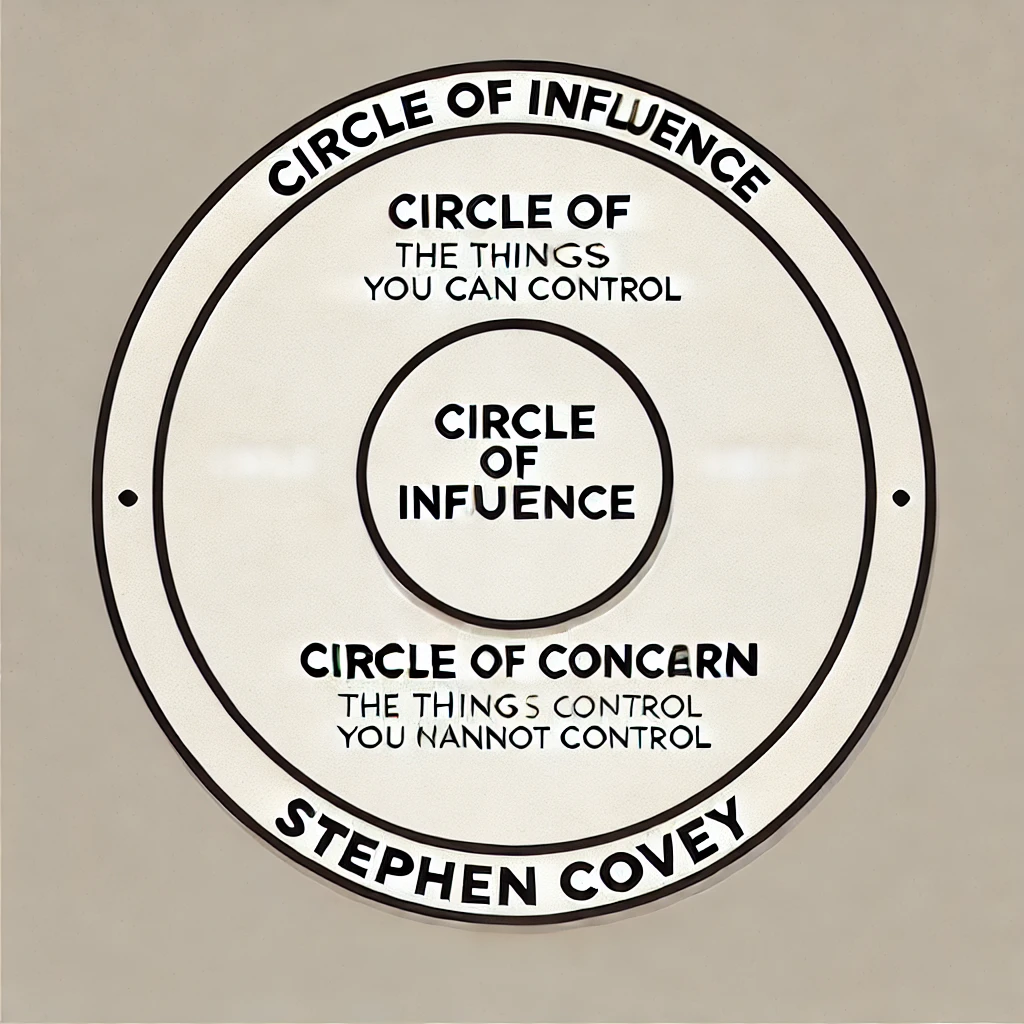Table of Contents
Overthinking
Overthinking is the process of constantly and excessively analyzing or considering ideas, decisions, or problems, often to the point where it impedes effective decision-making or causes unnecessary stress and anxiety. is It involves getting stuck in a loop of repetitive thoughts, where the mind focuses on the same problems over and over again without reaching a solution, leading to mental fatigue and emotional distress. Overthinking can manifest as obsessing over past events, worrying excessively about future possibilities, or being stuck in indecision due to an overwhelming amount of information or options.

How can I Stop Overthinking
Overthinking can be a challenging habit to break, but there are several strategies you can use to manage and reduce it. Here are some steps that might help to Stop Overthinking:
1. Practice Mindfulness and Meditation
Mindfulness and meditation are powerful tools that can help break the cycle of overthinking by anchoring you in the present moment. When you overthink, your mind often races between the past and the future, thinking about what might or might not happen. Mindfulness teaches you to focus on the here and now, reducing the mental clutter that fuels overthinking.
- Focus on the Present:Mindfulness involves paying attention to your present experiences without judgment. This means observing your thoughts, feelings and sensations as they occur, without getting caught up in them. For example, if you are eating, mindfulness would mean being fully engaged with the taste, texture, and smell of the food instead of letting your mind wander. This practice helps break the habit of getting lost in thought, as it trains your mind to focus on the present moment.
- Daily Meditation:Incorporating meditation into your daily routine can significantly reduce overthinking. Meditation allows you to create a quiet space where you can observe your thoughts from a distance, without engaging with them. Over time, this practice can help you become more aware of your thought patterns and become more adept at letting go of unproductive thoughts. Even just five to ten minutes a day can make a big difference. Start with simple breathing exercises or guided meditation to ease into the practice.

2. Set time limits for reflection
While it’s natural to think about decisions and events, overthinking often leads to paralysis by analysis. To combat this, it’s helpful to set boundaries around how much time you spend ruminating.
- Schedule ‘Worry Time:Setting aside a specific time each day to think about what’s on your mind can prevent those thoughts from intruding throughout your day. For example, you can set aside 15 minutes in the evening as your “worry time.” During this period, you can write down your concerns, explore possible solutions, or simply acknowledge your thoughts. Outside of this time, remind yourself that this is not the right moment to worry, and that you will have an opportunity to revisit these thoughts later. This technique helps control overthinking, preventing it from spilling over into other areas of your life.
- Time Limits on Decisions: Overthinking often leads to indecisiveness, as you excessively weigh the pros and cons of a situation. To overcome this, give yourself a set amount of time to make decisions. For example, if you’re trying to make a purchase decision, set aside 30 minutes to research and think about it. After time is up, make a decision based on the information you have. This approach encourages you to move forward instead of trusting your judgment and second-guessing yourself.
3. Challenge Negative Thoughts
Overthinking is often caused by negative or irrational thoughts that can distort your perception of reality. Learning to recognize and challenge these thoughts is crucial to breaking the cycle.
Identify Cognitive Distortions:Cognitive distortions are biased ways of thinking that can lead to overthinking. Common distortions include “catastrophizing,” where you expect the worst, and “black and white thinking,” where you see things at extremes, with no middle ground. Begin by identifying these distortions in your thought patterns. For example, if you find yourself thinking, “I’ll never make it,” recognize this as an exaggeration, an all-or-nothing attitude.
Ask yourself realistic questions:Once you identify a negative thought, challenge its validity by asking yourself realistic questions. For example, “Is this idea based on facts, or is it just my fear?” or “What evidence do I have that supports or refutes this thought?” By questioning the validity of your thoughts, you can begin to see them for what they are—just thoughts, not facts. This process helps you create a more balanced and realistic perspective, reducing the power of negative thinking.
4. Engaging in physical activity
Physical activity is one of the most effective ways to combat overthinking. When you’re active, your brain releases endorphins, which are natural mood lifters. Additionally, exercise provides a break from your thoughts, allowing you to focus on the physical sensations of your body and movement.
- Exercise:Regular physical activity is not only beneficial for your physical health but also for your mental well-being. Whether it’s running, swimming, yoga, or dancing, exercise helps clear your mind and shift your focus away from your thoughts to your body. The rhythmic nature of many exercises, such as running or cycling, can also have a meditative effect, helping you break free from overthinking.
- Take Walks:Walking, especially in a natural environment, is a simple but powerful way to reduce overthinking. Walking activates both hemispheres of your brain, which can help you coordinate your thoughts and feelings more effectively. This process, known as bilateral stimulation, can reduce anxiety and help you gain clarity about issues you’ve been thinking too much about. Additionally, being in nature has been shown to reduce stress levels and promote a sense of calm, making it easier to let go of overactive thoughts.
5. Engage yourself with healthy activities
When you’re stuck in a cycle of overthinking, one of the best ways to break free is to engage in activities that require your full attention. By focusing on something other than your thoughts, you can give your mind a much-needed break.
- Hobbies and Interests: Engaging in hobbies that you enjoy can be a great way to distract yourself from overthinking. Whether it’s painting, gardening, playing an instrument, or cooking, these activities require you to focus on the task at hand, leaving less room for overthinking. Additionally, hobbies often bring a sense of accomplishment and happiness, which can help counteract the negative emotions associated with overthinking.
- Socialize: Spending time with others can also help take your mind off your worries. When you’re engaged in a conversation or participating in a group activity, your attention shifts away from your inner thoughts to the people around you. Socializing can provide a new perspective on your concerns and remind you that you are not alone. Even a quick conversation with a friend or family member can make a big difference.
6. Write down your thoughts
Writing can be a powerful tool for managing overthinking. By putting your thoughts down on paper, you can organize them, gain clarity, and release the mental burden they create.
- Journaling: Regular journaling allows you to systematically process your thoughts and feelings. When you write down what’s on your mind, you create a physical record of your thoughts, which can help you step back and look at them more objectively. Journaling can also reveal your thought patterns that you might not have noticed otherwise. For example, you may realize that you overthink certain topics or situations more than others. Once you become aware of these patterns, you can begin to address them more effectively.
- Pros and Cons Lists:If you’re overthinking a particular decision, making a pros and cons list can help you evaluate your options more clearly. By explaining the pros and cons of each choice, you can see the situation from a more balanced perspective. This method can reduce the emotional intensity of decision-making and make it easier to reach a conclusion.
7. Practice Self-Compassion
Overthinking is often fueled by self-criticism and harsh internal dialogue. Practicing self-compassion involves treating yourself with the same kindness and understanding you would treat a friend in a similar situation.
- Be kind to yourself: Recognize that everyone struggles with overthinking from time to time. Instead of criticizing yourself for it, try to respond with kindness. For example, if you catch yourself overthinking, you might say to yourself, “It’s okay to feel this way. I’m doing my best.” This simple shift in perspective can reduce the stress you put on yourself and create a more supportive inner environment.
- Focus on self-care:Making self-care a priority can help you manage stress and reduce your chances of overthinking. Self-care activities can include taking a relaxing bath, reading a book, practicing yoga, or taking time to rest. By taking care of your physical and emotional needs, you can build resilience against the factors that contribute to overthinking.
8. Get professional help if needed
If overthinking is significantly affecting your life, it may be time to seek help from a mental health professional. Therapy can give you tools and strategies to manage your overthinking, as well as address the underlying issues that may be contributing to it.
- Therapy: Cognitive behavioral therapy (CBT) is particularly effective for treating overthinking and anxiety. CBT helps you identify and challenge negative thought patterns, replacing them with more balanced and realistic thinking. A therapist can also work with you to develop coping strategies tailored to your specific needs. In some cases, therapy may involve exploring the underlying causes of your overthinking, such as past experiences or unresolved emotions.
- Support Groups: Joining a support group can also be beneficial, especially if you find comfort in connecting with other people who share similar experiences. Support groups provide a safe place to discuss your thoughts and feelings, learn from others, and gain new perspectives. Knowing that you are not alone in your struggles can be incredibly comforting and can help reduce the feeling of isolation that often accompanies overthinking.
9. Develop problem solving skills
Overthinking often happens when you’re faced with a problem or decision and aren’t sure what to do. Developing strong problem-solving skills can help you face these situations with more confidence and reduce your tendency to overthink.
- Take Action: One of the most effective ways to break the cycle of overthinking is to take action. Even small steps can help you feel more in control of your thoughts and less overwhelmed. For example, if you are overthinking.
10. Focus on what you can control
One of the main causes of overthinking is the tendency to ruminate on things beyond your control. This habit not only drains your mental energy but also increases feelings of anxiety and helplessness. By shifting your focus to what you can control, you empower yourself to take proactive steps and reduce the mental burden associated with overthinking.
Identify Control Aspects
Start by distinguishing between what you can control and what you cannot control in any given situation. For example, you might be stressed about a project at work. While you can’t control your boss’s expectations or overall results, you can control how much effort you put into projects, how you manage your time, and how you respond to challenges. By focusing on these controllable aspects, you can channel your energy into constructive tasks instead of getting caught up in endless “what ifs.”
Use the Circle of Influence Model A useful tool in this process is the Circle of Influence Model popularized by Stephen Covey in his book The 7 Habits of Highly Effective People. This model envisions two circles.

Doing includes: A small inner circle represents the things you can control (such as your actions, thoughts and reactions) and a large outer circle represents the things you cannot control (e.g. other people’s actions, world events, or the past). By consciously focusing on expanding your inner circle—your circle of influence—you reduce the time and energy you spend worrying about things outside of your control.
Accept What You Can’t Control
Acceptance is an important component of reducing overthinking. When you accept that some things are out of your control, you free yourself from the mental loop of trying to change the unchangeable. This does not mean giving up or being inactive. It means recognizing your strengths and choosing to focus your efforts there.
- Practice Radical Acceptance:Radical Acceptance is a concept in Dialectical Behavior Therapy (DBT) that involves fully accepting reality, without judgment. When you encounter a situation that leads to overthinking, ask yourself, “Is there anything I can do to change this?” If the answer is no, practice accepting the situation as it is. This does not mean that you have to like the situation, but that you accept it without resisting or trying to change it. Over time, this practice can help reduce the mental struggles associated with overthinking.
Take Proactive Action to stop overthinking
Once you’ve identified what you can control, take proactive steps to address those areas. Action is a powerful antidote to overthinking because it shifts your focus from abstract problems to concrete solutions.
- Break tasks into manageable steps: If you’re overwhelmed by a big project or decision, break it down into smaller, manageable steps. For example, if you’re worried about a job interview, you might focus on preparing your resume, researching the company, and practicing common interview questions. By tackling each small task, you reduce the overall anxiety associated with the situation, making it less likely that you’ll get stuck in a cycle of overthinking.
- Implement Stress Reduction Techniques: Since stress often promotes overthinking, implementing stress reduction techniques can be extremely beneficial. These may include regular exercise, deep breathing exercises, or relaxation techniques such as progressive muscle relaxation. By managing your stress levels, you create a mental environment that is less conducive to overthinking.
Develop a Growth Mindset
A growth mindset—believing that your abilities and intelligence can be developed through effort and learning—can help you focus on what you can do instead of getting stuck in perceived limitations. Can be controlled.
- Accept Challenges:Instead of seeing challenges as threats, try to see them as opportunities for growth. This shift in perspective can reduce the fear and anxiety that often lead to overthinking. For example, if you’re thinking about a difficult work assignment, remind yourself that taking on the challenge can help you develop new skills and gain valuable experience.
- Learn from mistakes: Overthinking often stems from the fear of making mistakes. However, if you cultivate a growth mindset, you can see mistakes as learning opportunities rather than failures. When you make a mistake, ask yourself, “What can I learn from this?” and “How can I do better next time?” This approach minimizes the negative impact of mistakes on your mental state and helps you move forward without dwelling on past mistakes.
Let go of perfectionism
Perfectionism is a common cause of overthinking, as it leads to the endless pursuit of unattainable standards. By letting go of perfectionism, you can free yourself from the pressure of over-analyzing every detail.
Set realistic expectations: Instead of striving for perfection, aim for “good enough.” This doesn’t mean lowering your standards, but setting realistic, achievable goals. For example, if you’re working on a project, set a deadline and commit to completing it by then, even if it’s not perfect. This approach helps you avoid falling into the trap of overthinking every minor detail.
Embrace imperfection: Realize that imperfection is a natural part of life and that it’s okay to make mistakes or experience setbacks. When you accept that things don’t have to be perfect, you reduce the stress of overthinking and allow yourself to move more easily.
By focusing on what you can control, you take an active role in shaping your experiences and reducing the effects of overthinking. This shift in perspective not only helps you manage your thoughts more effectively, but also empowers you to live a more peaceful and balanced life.
FAQ: Understanding and Managing Overthinking
1. What is overthinking?
Overthinking is the process of dwelling on or analyzing thoughts, problems, or decisions excessively and repeatedly, often leading to stress, anxiety, and difficulty making decisions.
2. What causes overthinking?
Overthinking can be caused by a variety of factors, including anxiety, stress, perfectionism, fear of failure, or lack of confidence. It often arises from trying to control or predict outcomes in uncertain situations.
3. How does overthinking affect mental health?
Overthinking can contribute to mental health problems such as anxiety, depression and insomnia. This can create a cycle of negative thoughts that lead to feelings of helplessness and increased stress.
4. Can overthinking be harmful?
Yes, overthinking can be harmful because it can prevent you from taking action, lead to chronic stress, and negatively impact your overall health. It can also strain relationships and hinder productivity.
5. How can I stop overthinking?
To stop overthinking, try focusing on what you can control, practice mindfulness, take time to think, break tasks down into small steps, and challenge negative thought patterns. . Engaging in stress-reducing activities, such as exercise or meditation, can also help.
6. Does overthinking equal completion?
No, being thorough involves carefully considering important details, while overthinking involves excessive rumination on issues, often beyond what’s necessary, leading to stress rather than solutions.
7. What are some common symptoms of overthinking?
Common symptoms of overthinking include difficulty making decisions, constantly second-guessing yourself, replaying past events in your mind, worrying about the future, and experiencing mental fatigue.
8. Can therapy help overthinking?
Yes, therapy can be very effective in relieving overthinking. Cognitive behavioral therapy (CBT), for example, helps individuals identify and change negative thought patterns that contribute to overthinking.
9. How can I help someone who is overthinking?
To help someone who is overthinking, listen to their concerns without judgment, encourage them to focus on what they can control, and use mindfulness or Recommend techniques like breaking your worries down into manageable chunks.
10. Is overthinking more common in some situations?
Overthinking is often common when faced with uncertainty, high stakes, or complex decisions. It may also occur more frequently during times of stress or major life changes.
Conclusion on Stop Overthinking
Overthinking is a pervasive mental habit that can significantly affect your well-being, leading to stress, anxiety and indecision. While it’s natural to dwell on important decisions or past events, overthinking is beyond healthy reflection, often resulting in mental exhaustion and emotional distress. By understanding the root causes of overthinking and implementing strategies to manage it, such as focusing on what you can control, practicing mindfulness, and letting go of perfectionism. By doing this, you can break free from the cycle of repetitive thinking.
Empowering yourself to take proactive steps, accept imperfection, and accept what you cannot control allows you to shift your focus from unproductive rumination to meaningful action. By doing this, you develop a healthier mindset, reduce anxiety, and make room for more positive, constructive thinking. Ultimately, by overcoming overthinking, you open the door to greater mental clarity, better decision-making, and a more balanced, fulfilled life.


Your point of view caught my eye and was very interesting. Thanks. I have a question for you.
I don’t think the title of your article matches the content lol. Just kidding, mainly because I had some doubts after reading the article.